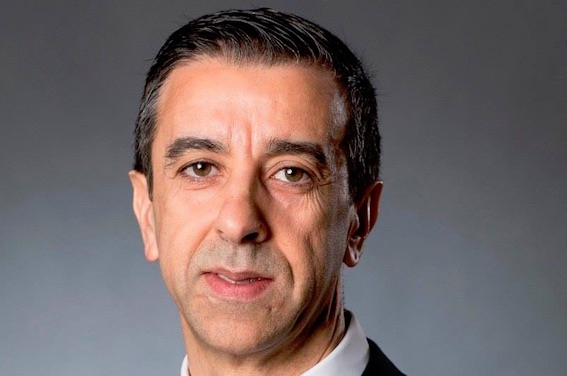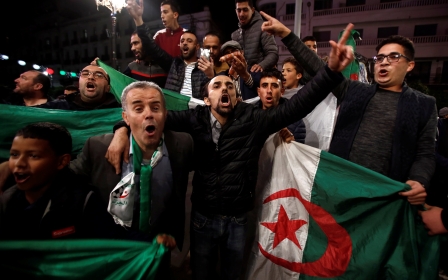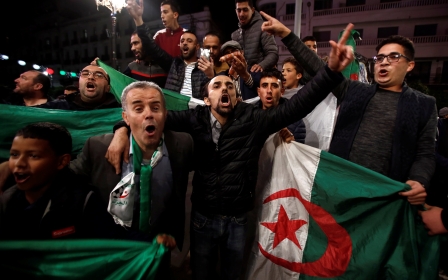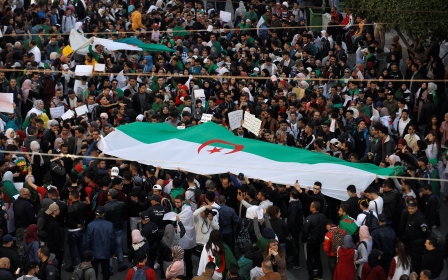Algeria: Let the war of succession begin

"The sacred balance between the presidency, the secret services and the General Staff is about to be altered. That's why everyone is worried about what lies ahead," a senior government official, speaking on condition of anonymity, told Middle East Eye.
The scenes of joy in the streets of Algiers on Tuesday evening failed to comfort this official. Following President Abdelaziz Bouteflika's resignation, which was ratified on Wednesday by the Constitutional Council, he is concerned about a crisis looming, and he is not the only one fearing that a new clan war could erupt.
Opposition politician and former head of government Ali Benflis asserts in a statement that "there are time bombs that the former regime and its extra-constitutional allies have striven to propagate. Now, the challenge is to defuse them one by one".
"Recent developments and signals sent by the system confirm the continuation of the 'clan transition' option," says a statement issued by a civil society collective of associations and unions dubbed, "For a peaceful way out of the crisis".
'We were in a real psychological war'
- Algerian intelligence source
The 'clan' that civil society group refers to are the networks of the former Department of Intelligence and Security (DRS) which was disbanded in 2016. They are still represented by their former boss, Lieutenant General Mohamed Mediene - known as General Toufik - who has come to the fore in recent days, in contrast to his usual low profile.
A letter written by Liamine Zeroual, who served as Algeria's president from 1994 to 1999, exposed on Tuesday the brokering between Mediene and Said Bouteflika, the president's brother.
"On 30 March, at his request, I had a meeting with retired Lieutenant General Mohamed Mediene who invited me to chair the transition management body," Zeroual wrote. "He confirmed to me that this proposal was the result of an agreement with Said Bouteflika, adviser to the president of the Republic."
A source close to the general told MEE: "It is difficult to say whether Mediene will play a role in the succession, but he is in any case on the side of those who do not want a constitutional solution to the crisis."
Latent war
The constitutional option to the crisis is the one that is currently being followed with the encouragement of Army Chief of Staff Ahmed Gaid Salah.
On 26 March, this loyal supporter of the resigning president called for the enforcement of Article 102 of the Constitution to sack Bouteflika. Nothing happened, suggesting that the crisis between the presidential circle and the army is not over.
"We were in a real psychological war," says an intelligence source. "Said knew that the army boss could not trigger the process and that the power balance was not in his favour, partly because the foreign partners would not accept another [Egyptian President Abdel Fattah el-]Sisi in the region."
But according to sources who spoke with MEE, the events that followed have reversed the power balance.
One event, in particular, changed the situation: the arrest of Ali Haddad, boss of the largest Algerian private construction group and former president of the most influential employers' union. A union which, according to sources, forms one of the extra-constitutional forces mentioned by Benflis.
Oligarchs targeted
From 2000 to 2015, a caste of businessmen fed on abundant oil revenues and on state contracts. Their 'brutal money', as the former governor of the Bank of Algeria Abderrahmane Hadj-Nacer used to call their riches, had been acquired by cheating the system, working outside institutions and laws and avoiding taxes. This caste eventually infiltrated the policy-making centres.
A few weeks ago, the recording of a conversation between Haddad and former Prime Minister Abdelmalek Sellal triggered the demise of the construction group mogul and started a chain reaction, with a series of resignations within the employers' organisation.
Arrested while fleeing Algeria through the Tunisian border, Haddad was brought back to Algiers this week and placed under a detention warrant in El Harrach prison pending trial.
"Counterfeit passports, cash, foreign currency... He behaved exactly like the thugs of the Bouteflika clan," a judicial source told MEE, adding that a dark future awaits Haddad and all those who "participated in the planned destruction of the economy".
The Algerian judiciary has already opened investigations into corruption and the illegal transfer of assets abroad, and has also prohibited a dozen personalities from leaving the country by grounding their private planes.
An extra-constitutional solution would be to create a temporary transitional body on the model of the High State Committee set up during the crisis of the 1990s, which led to the appointment of none other than Zeroual, a general, as president.
"Zeroual said no to a plan sponsored by Said, but now that the Bouteflikas are gone, he would no longer have any reason to refuse. Especially since Algerians would support this choice. They consider him as an honest man," a former military source told MEE.
On the Army HQ side, Ahmed Gaid Salah's supporters are confident.
"Algerians are not foolish. The army boss does not want power and seeks above all to preserve the nation's security," said one of his collaborators. "That's the only thing that drives his choices and people know it."
- The article is an edited translation of a story that was originally published by Middle East Eye's French website.
Middle East Eye propose une couverture et une analyse indépendantes et incomparables du Moyen-Orient, de l’Afrique du Nord et d’autres régions du monde. Pour en savoir plus sur la reprise de ce contenu et les frais qui s’appliquent, veuillez remplir ce formulaire [en anglais]. Pour en savoir plus sur MEE, cliquez ici [en anglais].







